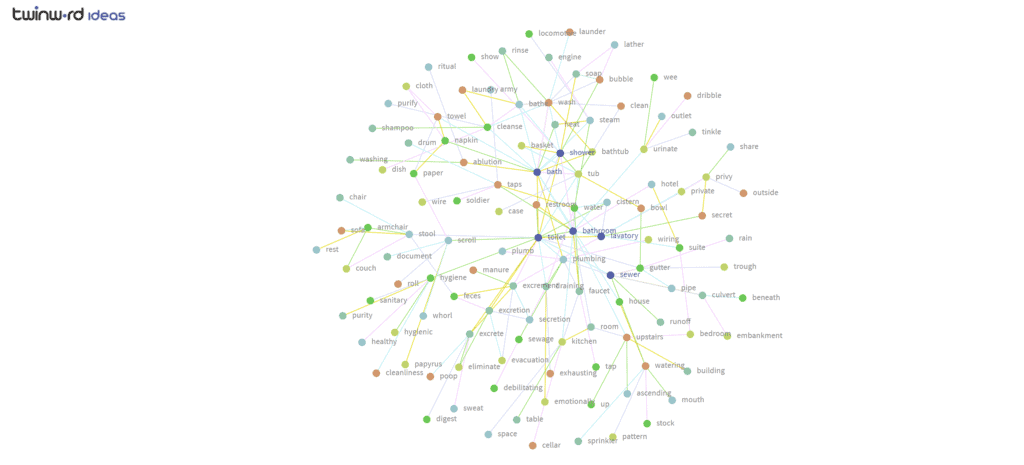What are LSI keywords?
LSI keywords (latent semantic indexing) are simply keywords related to the topic your page is about. They include not only just synonyms but other words that often occur when a certain topic is written about.
For example, if a website is talking about Apple, how do search engines know if the website is talking about the brand or the fruit? This is where search engines look for latent semantic indexed keywords to figure out what the page is specifically talking about.

How does Google use LSI keywords?
Google’s aim is to deliver to its users the most relevant content with the highest quality. Some indicators of quality are the website’s backlink profile, domain authority, and not being spammy. As for indicators of relevance, ever since the Panda Update of Google’s search algorithm, Google has been shifting their approach of detecting relevance from a keyword-match algorithm to more of a topical-match method. Topical match means that they are trying to understand the meaning of a web page instead of simply matching keywords when deciding relevance.
So, this means that the more LSI Keywords (related keywords) of your target topic you include, the more relevant your content will appear to be to Google for that topic. This will result in higher ranking because Google will know that your content will satisfy what the user is searching for (of course your quality mentioned above has to be on point too).
How Do I Use LSI Keywords?
Let’s get something clear: simply repeating and stuffing your content with keywords or even with LSI keywords will surely get you penalized by search engines. Use LSI keywords to help you rank, but do not let them interfere with the quality of your content.
The idea of LSI keywords is that you would just naturally include them as you write. With this in mind, you must try to include them as naturally as possible. If you simply stuff the keywords, you will end up reducing readability and Google will notice.
For example, if you are a travel blogger writing about a new vacation spot you found, you’ll want to make sure you talk about the “flight”, the “accommodation”, the “visit”, etc. Search engines know that topics of travel will often include those related keywords. This is why using an LSI keyword tool can help you. It never hurts to see what other related keywords you can talk about in your content with LSI generators or LSI technology already out there.
The more you use these LSI keywords, the more relevant your article will be to your topic and the faster your content will get exposed to the consumers who are looking for it.
Where Should I Put LSI Keywords (Naturally)?
Again, you’ll want to include them as naturally as possible. Below is a list of some places they will be important.
- Title of pages and images
- Header tags
- Beginning and ending paragraphs
- Anchor texts
- Throughout the pages you want ranked higher
- Meta description
- PPC campaigns
For more details on each of these places and what they are, you can read more at our article about where to put keywords in your web page.
How Many LSI Keywords Should I Include?
As many as you can do so naturally. When including the related words that LSI keyword tools give you, always keep the user in mind. Your ultimate goal is to help the user and on top of that, help Google understand you more.
Example of How to Use LSI Keyword Lists
Below is an example of some text before and after including LSI keywords and the relevance score of each version of the text.
BEFORE including LSI keyword suggestions
Here we have instructions (written without the help of LSI keyword tools) explaining “how to unclog a toilet without a plunger”:
STEP 1: Squirt generous amounts of dish soap or shampoo into the clogged toilet.
STEP 2: Add a gallon of very hot (but not boiling) water to the bowl.
STEP 3: Wait a few minutes and watch. The water should break up the toilet paper, and the soap should help it slide down the pipe.
Getting LSI keyword suggestions
Now, we will visit the LSI Graph of Twinword Ideas keyword tool to get LSI keywords. This tool allows us to visually see how each keyword is related to your topic.
AFTER including LSI keyword suggestions
Below is the same text, but enhanced with LSI keywords.
STEP 1: Squirt generous amounts of dish soap or shampoo into the clogged toilet in your bathroom or restroom.
STEP 2: Add a gallon of very hot (but not boiling) water to the bowl.
STEP 3: Wait a few minutes and watch. The water should break up the toilet paper, and the soap should help it slide down the pipe and clear your plumbing.
Results of the relevance score to the topic
Using text similarity technology, we can compare how related the before and after text to see how related they are to our topic.
The original text got a similarity score of 0.47 when compared with “how to unclog a toilet without a plunger”. The revised text including a few LSI keywords scored a 0.51. As you can see, using just only a few words you may have missed can boost your content’s relevance.

Free LSI Keyword Tools
Here is a list of free LSI tools that can help you get LSI keywords for your topic.
You may already be doing LSI research without knowing. However, it never hurts to use a tool to see what you might have missed.
Remember, take care of your readers. As long as you’re taking care of your audience, Google will eventually catch up to you. I am speaking about future-proofing your SEO. You may not rank high now, but the more you take care of your website visitors, the more aligned you are to where Google wants to go: satisfying the user.






6 Comments
Thanks for sharing such a great and precise information. I am expecting to have more great contents like this to help us growing in future.
That’s really great post. I appreciate, Thanks for sharing.
Good article. However, you need to hire a proofreader.
There are two typos in this paragraph.
“Let’s take for example are a travel blogger writing about a new vacation spot you found. You’ll want to make sure you talk about the “flight”, the “accommodation”, the “visit”, and etc. Search engines know that topics of travel will often include those related keyword…”
Hi Laurence, thanks for the comment! We’ll make sure to correct that. If you find any further mistakes please let us know 🙂
Awesome way of expression. Keep it up!
I completely agree with everything that you wrote in here, since Google is moving more to Semantic Search briefly, LSI keywords is a way to do SEO in 2020.